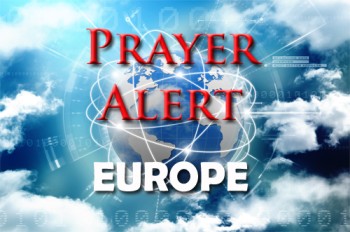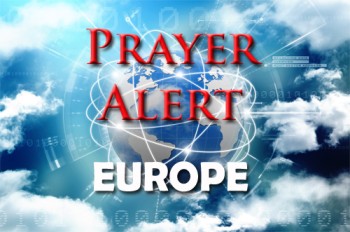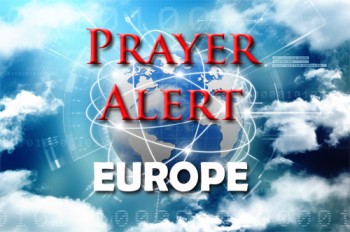Displaying items by tag: Europe
Ireland: cocaine and guns
On 12 July the Gardaí seized €1.1m worth of cocaine and arrested three men at Dublin Airport with support from German and South American police and revenue officers. Investigations are still ongoing. The previous day, an Uzi machine gun, silencer and two magazines of ammunition were found in Dublin, the second such discovery since March. Before 2012 the guns were issued to the Gardai. The weapons will be analysed to establish if they were used in any recent attacks. No arrests have been made and the investigation is continuing.
Ukraine: Canada pledges armoured vehicles
Canadian prime minister Justin Trudeau pledged to send more military support for Ukraine at the NATO summit. His defence minister said that Canada will boost Ukraine’s arsenal by sending 39 General Dynamics-made armoured vehicles ‘this summer’. The fleet, which comprises combat support vehicles that can be used as ambulances, maintenance and recovery vehicles or to transport troops, is part of Ottawa’s $500m military support for Kyiv. They are in addition to a separate multi-billion dollar contract for 360 vehicles being delivered for the Canadian armed forces there.
Snake Island: Russia drops phosphorus bombs
Snake Island is a critical outpost for controlling shipping lanes for the export of Ukrainian grain and accessing the key port of Odessa. After Moscow retreated from the Black Sea outpost in a ‘gesture of goodwill in order to organise humanitarian grain corridors’ they launched a barrage of strikes on the island. Russian Su-30 fighter jets used phosphorus bombs, according to the commander-in-chief of Ukraine’s army, Valeriy Zaluzhnyi. Phosphorus can kill, maim and poison victims, burning through bone upon contact with flesh. Ukrainian officials have accused Russia of using the weapons multiple times during Putin’s invasion, including in attacks last month on the western city of Lutsk and Popasna in the east. Pray for victims with phosphorus burns to be swiftly transported to medical burns units for skin grafts and specialised medical support. Pray for the registration of phosphorus as a chemical weapon under the Chemical Weapons Convention.
Positive eco-friendly story
‘Sand batteries’ could be a key breakthrough in storing solar and wind energy all year round. Solar energy stored in sand batteries could help get Finns through the long cold winter, which is set to be even tougher after Russia stopped its gas and electricity supplies. The new technology has been devised by young Finnish engineers Tommi Eronen and Markku Ylönen, founders of Polar Night Energy. This innovation could be used worldwide. Whilst a number of other research groups are testing the limits of sand as green energy storage, the pair are the first ones to successfully rig it to a commercial power station.
Ukraine: Pray for refugees’ protection
The International Justice Mission (IJM) reminds us that the Ukraine conflict has displaced millions of women and children across Europe who are now running out of savings and resources, making them vulnerable to false work offers or accommodation from traffickers. The UN warns that Ukraine’s war is turning into a ‘human trafficking crises’. We need to cry out to God for women and children’s protection, that they would find safe housing and a stable income, to avoid accepting offers from traffickers. Please pray that they would know God's peace and comfort at this time of great difficulty. Pray for the expansion of IJM's anti-trafficking work in Europe. Ukraine’s refugee crisis means they urgently need to expand their anti-trafficking work into more European countries to reach and protect more vulnerable people. Pray for more local churches and European communities to accept and help refugees and may God mightily bless those volunteers already welcoming Ukrainians into their communities.
Ukraine: Zelensky urges G7 ‘help us win by year end’
Ukraine: Zelensky urges G7 ‘help us win by year end’
NATO is increasing the troops available to its response force from the current 40,000 and will strengthen forward defences. The military alliance's secretary-general said, ‘We will enhance our battle groups in the eastern part of the alliance, up to brigade levels. We will transform the NATO response force and increase the number of our high readiness forces to well over 300,000.’ He describes Russia as the most significant and direct threat to the alliance's security and values and the NATO response to the invasion of Ukraine as the biggest overhaul of its collective defence and deterrence since the Cold War. Meanwhile, British troops are training Ukrainian soldiers on multiple-launch rocket systems and light guns on Salisbury Plain. A Royal Artillery trainer said it was a privilege to train the Ukrainians, they are professional rocket artillerymen. Their motivation to be quick and to learn is incredible. They don’t take many breaks. They are here to learn and are keen to return to Ukraine ‘as soon as possible’.
Global: Probes into migrant deaths
Five human rights organisations want Spain and Morocco to investigate the deaths of 18 migrants, the injuries of 76 others, and the actions of 140 Moroccan security officers when migrants attempted to scale a fence separating the two countries. Spain's Commission for Refugees decried ‘indiscriminate use of violence to manage migration and control borders had prevented people who were eligible for international protection from reaching Spanish soil’. Meanwhile, UNHCR is asking both Africa and Europe to enhance legal frameworks and operational capacities at land and sea borders and urban centres plus youth programming and local community-based development as alternatives to dangerous journeys. In America the bodies of 51 dead migrants were discovered inside a lorry in San Antonio. An official said they found ‘stacks of bodies and no water in the truck. Sixteen survivors are in hospital with heat stroke and exhaustion, including four minors. No children were among the dead. See
France: legislative election upset
France is in uncharted waters after President Emmanuel Macron lost his majority, with a large, shaky opposition bloc on the left and many more far-right lawmakers surging into the National Assembly. Just two months into his second five-year term, Macron has the narrowest majority in French political history and must govern through coalition-building. Marine Le Pen's strategy to turn her far-right party mainstream has succeeded, increasing its lawmakers almost tenfold and cementing the party's rise from fringe status to mainstream opposition. The largest opposition group can claim the privilege of chairing the National Assembly's finance committee - a strategic role because the committee's president sets the agenda, giving any opposition lawmaker determined to hamstring the majority a tool to do so. It also confers powers of inquiry, with access to tax and public spending documents usually off-limits. Marine Le Pen says she intends to lobby for this highly strategic post.
European Court of Human Rights
Individuals who were due to be removed to Rwanda lodged applications with the Court of Human Rights requesting they be allowed to stay in the UK as their application for residency in the UK is considered. Following a first request for an interim measure, on 14 June others lodged similar applications. There are serious risks that the international law principle of non-refoulement (compulsory repatriation to a nation of origin leading to great danger) will be breached by forcibly transferring asylum-seekers to Rwanda. We can ask God to protect our human rights laws. We can pray for the future UK Bill of Rights, currently being considered by the UK government, to come under God’s authority; and for treaties and laws to be according to His order, not man’s. Protecting people and giving them freedom lies at the heart of human rights laws. Father, we ask for every law and law management around this issue to be aligned with Your principles.
NI Protocol disagreement
Part of Brexit released lorries from checkpoints between the UK and EU (Northern Ireland to Republic of Ireland). Instead they are checked when arriving in NI from mainland UK. This protocol was agreed because of sensitive political border histories. Boris Johnson wants to change this protocol section to make it easier for some goods to move between Britain and NI. But the European Commission vice-president said there was ‘no legal or political justification whatsoever for unilaterally changing an international agreement; it has left us with no choice but to take legal action.’ Mr Johnson insists the proposals are legal, will secure the UK’s future and are set out in a parliamentary bill. The protocol is upsetting the balance of the Good Friday Agreement’. The Democratic Unionist Party, who won the second-most seats in recent elections, is refusing to set up a new ruling Northern Ireland executive with Sinn Féin, who won the most seats, until changes are made to the protocol.









